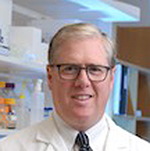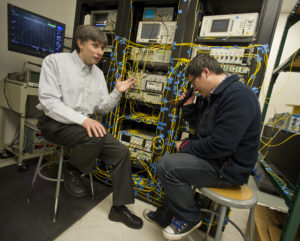DRUG SHOWS PROMISE IN STRENGTHENING DIABETICS’ BONES

Sean Morrison
Work by UT Southwestern Medical Center stem cell researcher Sean Morrison has been influential showing how a drug that can reverse diabetes and obesity in mice could have the unexpected benefit of strengthening bones.
That would be beneficial for the growing population of Americans who are using diabetes drugs that can leave the patients’ bones weaker, according to a report in the journal Science.
The compound researchers examined is called TNP (2,4,6-trinitrophenol, also known as picric acid).
Doctors and researchers have noticed that diabetes drugs that increase insulin sensitivity can have the serious side effect of decreasing the activity of cells producing bone, leaving them vulnerable to fractures and osteoporosis.
“There are millions and millions of people that have osteoporosis [with or without diabetes], and it’s not something we can cure,” Morrison told Science. “We need new agents that promote bone formation.”
“There are millions and millions of people that have osteoporosis [with or without diabetes], and it’s not something we can cure.”
Sean Morrison
The journal said Morrison and his colleagues have shown that a high-fat diet causes mice to develop bones that contain more fat and less bone, and an increased level of the hormone leptin in the bone marrow — promoting the formation of fat cells instead of bone cells.
That hormone is produced by fat cells that usually signals satiety in the brain.
Siddaraju Boregowda, a stem cell researcher at the Scripps Research Institute in Jupiter, Florida read Morrison’s work and it reminded him of genetically altered mice that do not gain body fat or develop diabetes even when they are fed high-fat diets, Science reported.
Boregowda and his boss, stem cell researcher Donald Phinney, were curious if those mice somehow were protected from the fattening of bone marrow caused by the high-fat diet. They brought Scripps molecular biologist Anutosh Chakraborty into the equation and discovered that the mice lack a gene for an enzyme called inositol hexakisphosphate kinase 1, which is involved in fat accumulation and insulin sensitivity.
The team fed genetically altered mice and normal mice a high-fat diet for eight weeks, Science said, and discovered that the genetically altered mice developed fewer fat cells that the normal mice, but produced more bone cells.
That discovery led the researchers to see if a drug could achieve the same effect, so they fed normal mice a high-fat diet for eight weeks and gave them daily injections of TNP or a placebo. After the eight weeks, analysis showed that the mice that were given the TNP had developed more bone cells and fewer fat cells.
PACCAR TECHNOLOGY INSTITUTE NAMES NEW DIRECTOR
The University of North Texas College of Engineering’s PACCAR Technology Institute has a new director.

Anupama Kaul
Anupama Kaul comes to UNT from the University of Texas at El Paso. She also will be the PACCAR professor in engineering and a professor in the Department of Materials Science and Engineering, with a joint appointment in the Department of Electrical Engineering, UNT said in a release.
Her appointment became effective Sept. 1.
“She brings with her an impressive background in nanomaterials, and we’re looking forward to seeing what she will accomplish at the College of Engineering,” said Costas Tsatsoulis, dean of the College of Engineering.
Kaul earned her Ph.D. from the University of California at Berkeley and was a senior member of the technical staff at the California Institute of Technology’s Jet Propulsion Laboratory from 2002-14.
She joined UTEP in 2014 as the associate dean for research and graduate studies in the College of Engineering and held the AT&T Distinguished Professorship.
Kaul said having strong connections will be an important part of the lab’s continued success.
“Partnerships will be vital to enhance the growth and increase the visibility of PACCAR, with the vision that it will serve as a regional hub for innovative research and development in nanoscience and nanotechnology,” she said.
UTA PROFESSOR GETS DEPARTMENT OF DEFENSE GRANT

Micahel Vasilyev talks to one of his students. Vasilyev received a Department of Defense grant to upgrade the ability to send and receive encrypted high-speed data securely through optical cables. [Photo courtesy of UT Arlington]
University of Texas at Arlington electrical engineering professor Michael Vasilyev has earned a one-year, $498,981 HBCU/MI equipment grant from the Department of Defense.
The funds will be used to buy equipment to construct an ultra-high-speed coherent optical/electrical signal generation and characterization platform for applications that require very high information exchange rates and ultrafast data processing, according to the university.
The equipment will significantly upgrade researchers’ ability to send and receive encrypted high-speed data securely via optical cables, UTA said in the release.
The Department of Defense provides Historically Black Colleges and Universities/Minority-Serving Institution grants to help fund research and education programs that are designed to improve the capabilities of institutions to conduct research and educate scientists and engineers in subjects that are important to national defense.
In 2014, UT Arlington was designated a Hispanic-serving institution, when its Hispanic undergraduate enrollment reached 25 percent of its total undergraduate enrollment.
For more information on the grant and how it will be used, go here.
Dallas Innovates, every day
One quick signup, and you’ll be on the list.






























